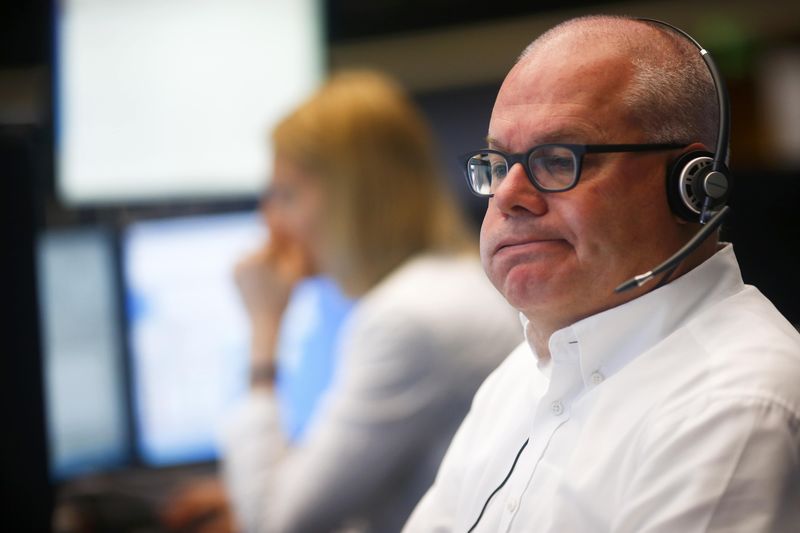(Bloomberg) -- When China unveiled plans on Friday to end the implicit guarantees underpinning asset-management products worth trillions of dollars, it should have been a bombshell for the nation’s savers.
But for Yolanda Yuan and other individual investors who’ve piled into AMPs issued by banks, insurers and securities firms, the government’s announcement was largely a non-event. The reason: they didn’t believe it.
“I don’t think any big banks will dare to take the risk of allowing defaults on AMPs, as that will lead to a flood of fund redemptions,” said Yuan, a 29-year-old sales manager at a state-run financial company in Shanghai. She has about 100,000 yuan ($15,069) of personal savings in products covered by the new regulations.
Over the past 13 years, assets in Chinese AMPs have swelled from almost nothing to $15 trillion in large part due to one key assumption: that investors would be made whole no matter what happened to the products’ underlying assets. Authorities are now moving to quash that belief amid concern that rampant moral hazard is distorting market prices and making the financial system vulnerable to crises. Yuan’s enduring faith in implicit guarantees suggests the government’s task won’t be easy.
It may ultimately require an AMP blowup for Chinese regulators to convince investors that they’re serious about the new rules, which are set to take effect in mid-2019. But a major product failure is risky: In a worst-case scenario, it could spark a destabilizing stampede out of AMPs, which have become a key source of funding for banks and other financial institutions. It’s not entirely clear that’s a chance Beijing is willing to take, despite last week’s rhetoric.
“It’s very hard,” said David Loevinger, a former China specialist at the U.S. Treasury Department who now works as an analyst at TCW Group Inc. in Los Angeles. “You have to show people that there are no longer guarantees. The only way to show it is to force investors to take losses. They have to see it to believe it.”
Read more about China’s new asset-management product rules here.
Chinese savers have come to depend on the stable returns promised by AMPs, most of which offer fixed rates and mature in less than a year.
Bank-issued wealth management products, the biggest slice of the AMP pie, have proven remarkably reliable despite investing in volatile assets from corporate bonds to stocks and real estate. Among the more than 184,400 products that matured in 2016, just 88 suffered a loss, according to the government’s annual WMP report.
While public evidence of WMP bailouts is scarce, the People’s Bank of China has said that when products struggle to meet their return targets, lenders that distribute them often make up the shortfall. WMPs sold last week advertised an average annualized yield of about 4.66 percent, according to Chengdu-based research firm PY Standard, versus the one-year deposit rate of 1.5 percent.
Chinese regulators want to ditch the fixed-return model for something more akin to the U.S. mutual fund industry, where investors bear the risk of fluctuating market prices and can see the net-asset value of their funds every day. That would increase transparency and better align products’ risks with their returns, but it would also mean greater odds of losing money -- something that AMP buyers haven’t traditionally had to worry about.
That’s not to say that Chinese savers are ignorant of investment risk. A portion of the $15 trillion in AMPs already resides in NAV products such as mutual funds, while millions of individual investors have opened equity trading accounts. Many lost money during the nation’s 2015 market crash.
“I never trusted implicit guarantees,” said Zhang Tailun, a 29-year-old auditor at an accounting firm in Shanghai who has about 100,000 yuan in WMPs, 30,000 yuan to 40,000 yuan in Ant Financial’s Yu’e Bao fund, and 50,000 yuan in an equity fund. “I do study what my WMPs invest in, so I will only buy products that I’m comfortable with, which have shorter tenors and lower yields.”
Still, many Chinese investors are unwilling to entertain the idea that WMP issuers would allow a product to fail.
Yang Mo, a 30-year-old public relations professional in Beijing, says she has so much faith in implicit guarantees that she doesn’t bother paying attention to who’s managing her WMPs or what they’re investing in.
“Backstage support will stay in place,” said Yang, who has about 100,000 yuan in WMPs. “I have never done much research into the WMPs I bought. I don’t think they will default.”
